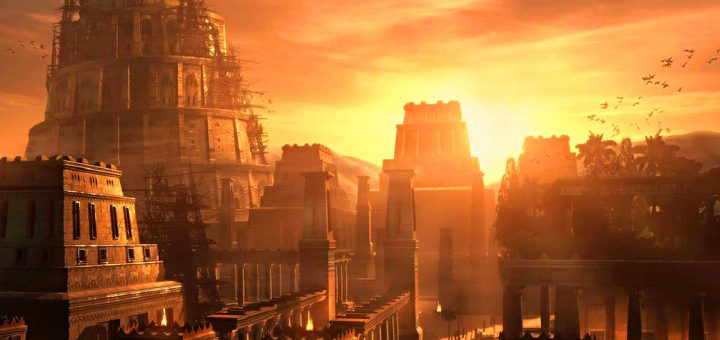Richest Man in Babylon 3 – 5 Laws

Today’s post is our third visit to The Richest Man in Babylon by George Clason.
Five laws of gold
We left it last time with Nomasir about to explain the five laws of gold.
Here they are:
- Gold cometh gladly and in increasing quantity to any man who will put by not less than one-tenth of his earngs to create an estate for his future and that of his family.
- Gold laboreth diligently and contentedly for the wise owner who finds for it profitable employment, multiplying even as the flocks of the field.
- Gold clingeth to the protection of the cautious owner who invests it under the advice of men wise in its handling.
- Gold slippeth away from the man who invests it in businesses or purposes with which he is not familiar or which are not approved by those skilled in its keep.
- Gold flees the man who would force it to impossible earnings or who followeth the alluring advice of tricksters and schemers or who trusts it to his own inexperience and romantic desires in investment.
As you can see, there is complete overlap with the seven cures for a lean purse.
- In fact, the five laws map to just three of the cures.
The book goes through each of the laws in detail, but it’s material that we already covered under the cures:
- save 10% of your income
- compounding is powerful (especially at the 6% pa rate prevailing in Babylon)
- put your savings to profitable use
- take advice from experts
- don’t take excessive and/or unnecessary risks
- stay away from investments you don’t understand and people who are not experts
- if it looks too good to be true, it probably is
The Gold Lender of Babylon
The next chapter tells the story of Rodan, a spearmaker who has fifty pieces of gold, reward from the king for making nice spears.
His sister wants him to lend the gold to his brother-in-law so that he can start a new business.
- The gold lender warns him not to lend money to friends and family – particularly those who are not already skilled in the enterprise for which they need the money.
If you desire to help thy friend, do so in a way that will not bring thy friend’s burdens upon thyself. The safest loans, are to those whose possessions are of more value than the one they desire.
In other words, collateral is important.
In another class are those who have the capacity to earn. They have income and if they are honest and suffer no misfortune, I know that they also can repay the gold I loan them.
If you have no collateral, you need an income sufficient to service the loan.
- Those with neither cannot borrow.
Nor are those in an emotional state suitable borrowers.
Yet, I do not discourage borrowing gold. I recommend it if it be for a wise purpose.
The only wise purpose I can think of is to buy a house.
The gold lender persuades Rodan to consider lending his own gold (as a business) and leaves him with this motto:
Better a little caution than a great regret.
The Walls of Babylon
The next chapter tells the story of Old Banzar, a warrior helping to guard the city against an attack from the Assyrians whilst the Babylonian king is away.
- Banzar reassures the terrified inhabitants of the city that the walls will hold.
After 26 days the attackers retreated.
The walls of Babylon were an outstanding example of man’s need and desire for protection. [Today] behind the impregnable walls of insurance, savings accounts and dependable investments, we can guard ourselves against the unexpected tragedies that may enter any door and seat themselves before any fireside.
The moral is that everyone needs protection.
- My version of this is the goal of financial independence.
Once you can live off your investments, you are protected.
The Camel Trader of Babylon
The next chapter is about Tarkad, who owes money to Dabasir the camel trader.
When they meet and Tarkad cannot pay, Dasabir takes him to lunch but orders only water for Tarkad, whilst Dasabir eats a goat leg.
- Dasabir tells the story of how in his youth he squandered his money and didn’t repay his debts.
He was taken as a slave to Syria and freed by his master’s wife when he expressed the desire to repay his debts.
- He returned to Babylon and through camel trading repaid what he owed.
Tarkad has learned his lesson and Dasabir orders some food for him.
The motto of this parable is:
Where the determination exists, the way can be found.
That’s it for today – it’s been a little thin this time because of the overlap between the laws and the cures.
- We’re three-quarters of the way through the book now, so I expect to complete it in one more article (plus a summary).
Until next time.














